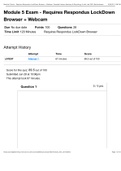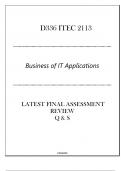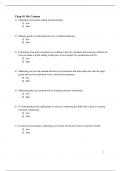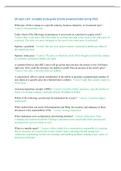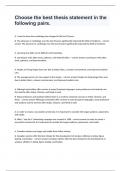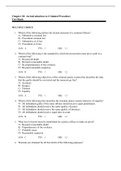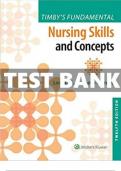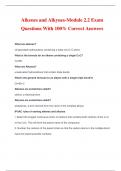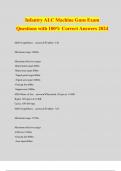Summary
Summary Dishonest Assistance & Unconscionable Receipt - Equity & Trusts Law (LLB)
- Module
- Equity And Trust
- Institution
- City University (City)
Dishonest Assistance and Unconscionable Receipt Summarised Notes for the Equity and Trusts Law module, LLB, at City, University of London - can of course be used for other universities as well! Should be used with the full bundle of notes!
[Show more]




